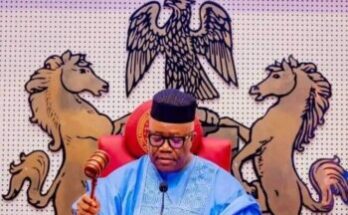By Issa Aremu, mni
The 3rd ITUC World Congress opened May 18, at the City Cube in Berlin, Germany. As a delegate of Nigeria Labour Congress, yours comradely witnessed the historic opening ceremony of what the ITUC President, Michael Sommer, aptly dubbed “United Nations of Working people”. Over 1500 trade unionists representing 176 million workers from 161 countries are attending the 3rd International Trade Union Confederation World Congress which takes place from May 18 to 23rd.
The Congress which represents millions of organized workforce from Europe, Asia, Africa, Latin America as well as America meets every four years. ITUC is the largest democratic organisation in the world representing 325 national trade unions and working people all over the world. The 2014 theme is “Building Workers’ Power”. The opening ceremony received addresses from German Foreign Minister Frank-Walter Steinmeier and Helen Clark, UNDP Administrator, representing the United Nations, and ITUC President Michael Sommer. All the addresses stressed the need for fairer redistribution of the global wealth, global peace and to terrorism. Earlier the ITUC General Secretary’s address by Sharan Burrow outlined the state of the world for working people and the findings of the ITUC Global Poll 2014. The Congress also witnessed the presence of ILO Director-General Guy Ryder who will address the Congress today.
Delegates debatedorganising campaigns in multi-national companies including T-Mobile USA and Deutsche Telekom, organising in the informal sector, government action plans to address inequality including a minimum living wage and social protection, climate action and trade agreements. The Congress will also hold a public vote for the worst employer-boss in the world. There will also be workers’ hearings on the informal sector and discrimination and panel debates on indigenous rights, domestic workers. A new global rights index will be released on the worst countries for workers based on violations recorded from 2013 – 2014.
Special guests include former professional footballers AbdeslamOuaddou and ZahirBelounis who was trapped in Qatar for 17 months; Gordon Brown MP, UN Special Envoy for Global Education; Jay Naidoo, Chairman of the Global Alliance for Improved Nutrition and a former Minister in the Mandela Cabinet; Professor OzlemOnaran, Professor of Workforce and Economic Development Policy at University of Greenwich; Larry Elliott, Guardian Economics Editor; and JayatiGhosh, Professor of Economics at Jawaharlal Nehru University, New Delhi, India.
ITUC reported that Workers across the globe are losing faith in their national governments whom they see as putting the interests of big corporations ahead of their own, according to a new international public opinion poll from the International Trade Union Confederation (ITUC). Released at the opening of the 3rd ITUC World Congress in Berlin, Sunday, May 18, the ITUC Global Poll 2014 commissioned from market research company TNS Opinion, covers the general public of 14 countries which have half the world’s population. The report indicates that; “The global economy needs co-ordinated action to raise living standards around the world. Seven years into the economic crisis has left structural damage to the global economy and the global workforce with more than 200 million people unemployed and many more struggling with low wages. Governments are in the grip of corporate power and are failing their people” said Sharan Burrow, General Secretary, International Trade Union Confederation. The poll showed: 79 percent do not believe the minimum wage is enough for a decent life.
“The global labour movement at the ITUC World Congress has put entrenched business interests on notice. Nearly two-thirds of people want governments to tame corporate power.People, dissatisfied with their own government’s performance, know they are increasingly in the grip of corporate power. The world has to change, power needs to be rebalanced.
In the past three years over half the world’s population have not been able to save any money. “Realising decent wages for working families and those on low incomes means tackling the excesses of the 1 %. When people can’t save, family security is threatened with no capacity to invest in housing or other assets. Savings represent an essential component of long-term balanced growth,” said Sharan Burrow.
Only one in two people believe the next generation will find decent jobs. The poll showed distrust in government and the economic system: 68 percent think their government is doing a bad job at tackling unemployment. Four out of five people (78 percent) believe the economic system favours the wealthy, rather than being fair to most. More than half rate the current economic situation in their country as bad. “When people increasingly fear for the next generation, it should be a warning for governments to act. People want their governments to reduce the gap between rich and poor, ensure fair wages, and increase job security, the report concludes.
Aremu wrote from Abuja



